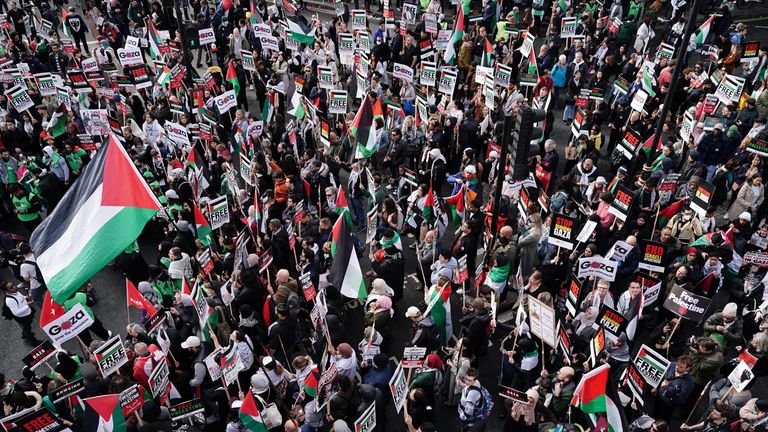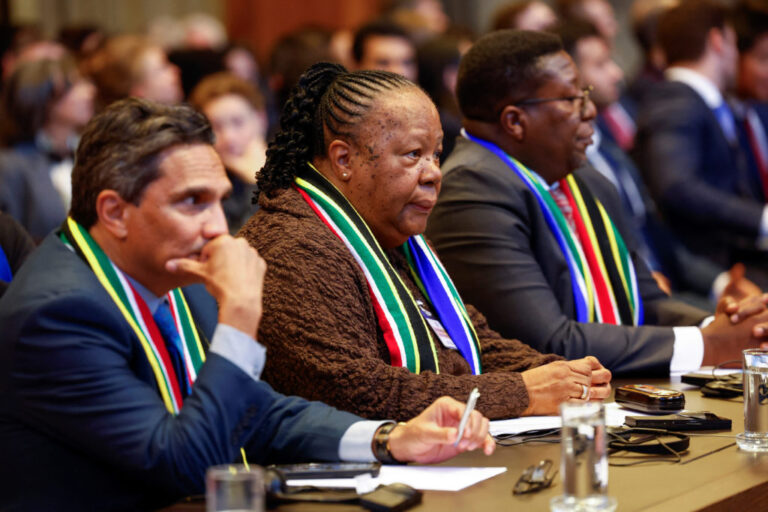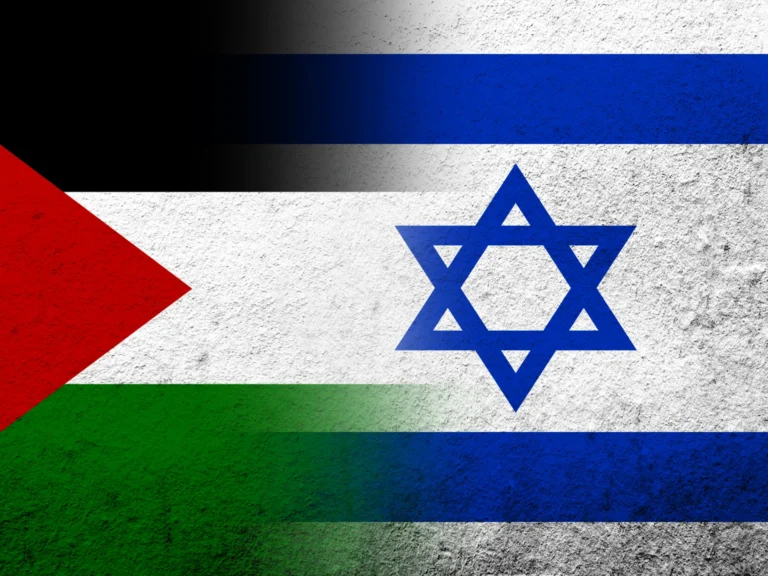
South Africa's Department of International Relations and Cooperation (DIRCO) Director-General Zane Dangor, South African Foreign Minister Naledi Pandor and South African Ambassador to the Netherlands Vusimuzi Madonsela listen as the International Court of Justice (ICJ) rule on emergency measures against Israel following accusations by South Africa that the Israeli military operation in Gaza is a state-led genocide, in The Hague, Netherlands, January 26, 2024. REUTERS/Piroschka van de Wouw
VOCAL AGAINST ISRAEL, SILENT ON AFRICA’S REAL GENOCIDES.
When South Africa filed an application at the International Court of Justice in December 2023 accusing Israel of genocide in Gaza, it framed the move as a moral duty born of its own history under apartheid. The government described the campaign as a “defining stand for global justice,” and senior ministers repeated that message in press conferences and UN statements. Within weeks, South African diplomats urged the court to impose emergency measures on Israel and called on other nations to join the case. The filing placed Pretoria at the centre of one of the most polarizing international disputes of the decade.
That same activism was on full display at the UN General Assembly, where President Cyril Ramaphosa and Foreign Minister Naledi Pandor devoted major speeches to condemning Israel’s military operations. They demanded sanctions, suspension of diplomatic privileges, and a global boycott of Israeli weapons sales. South African representatives also co-sponsored resolutions criticizing Israel’s conduct and supported pro-Palestinian motions in multiple UN committees. These efforts earned applause from pro-Palestinian blocs and media attention across the world, reinforcing South Africa’s image as one of Israel’s most outspoken adversaries in international forums.

Yet while Pretoria moved decisively on Israel based on Hamas propaganda, its response to ongoing real genocides in Africa has been shameful, dead silence, and zero action. In Nigeria, extremist militias such as Boko Haram and Islamic State, West Africa Province, have murdered tens of thousands of civilians, many targeted for their Christian faith. In Sudan, the conflict between the army and the Rapid Support Forces has left entire communities in the Nuba Mountains and Blue Nile regions devastated. Human-rights groups have documented mass killings, forced displacement, and religious persecution that meet the criteria of crimes against humanity. Still, South Africa has not led any Security Council push, African Union initiative, or humanitarian intervention to address these crises.

The contrast is stark. The government that can marshal legal teams, diplomatic campaigns, and global media coverage to accuse Israel of genocide has not shown equivalent urgency toward bloodshed on its own continent. Pretoria has neither initiated international proceedings nor demanded emergency sessions for African victims of mass violence. This selective activism reflects political alignment with the Arab world and the West rather than moral consistency, turning human-rights advocacy into an instrument of foreign-policy signalling rather than universal principle.
If South Africa wishes to retain credibility as a champion of justice, it must apply its standards evenly. True leadership on human rights means confronting atrocities wherever they occur, including in Africa’s own neighborhoods. Until Pretoria raises its voice for the victims of Nigeria, Sudan, and other forgotten conflicts with the same intensity it directs at Israel, its calls for “global justice” should be called out for what it is; hypopolitical political theatre.





